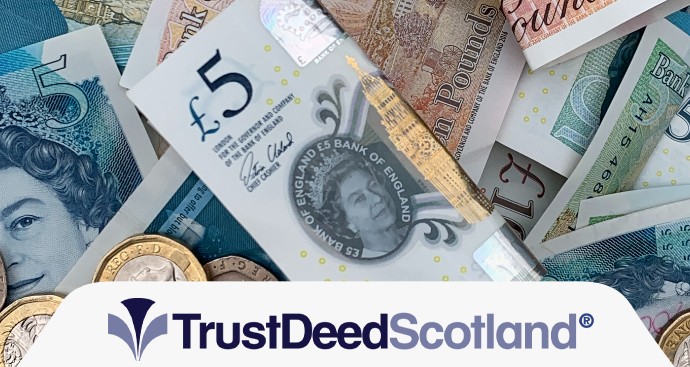Financial abuse is also known interchangeably as economic abuse and both are a form of coercive control.
Like other forms of domestic abuse, it is feared that financial abuse may have increased during the recent Coronavirus pandemic restrictions and was a recent theme covered during Talk Money Week 2020.
What is financial abuse?
Financial abuse can be described as the control that one person holds over another economically.
While financial abuse is most frequently committed by a partner – a family member or other party known to the victim can use coercive control in this way.
Examples of financial abuse include:
- Forcing the victim to take out credit in their name
- Removing access to household/joint finances
- Controlling employment earnings and benefit entitlement
Many victims of physical, sexual and emotional abuse are likely to also be suffering financial abuse.
Coercive control extends beyond separation and financial abuse may begin, continue or escalate post-seperation. This can then become a factor in returning to the abuser.
What is economic abuse?
Similar to financial abuse, this can be committed by a partner or any other controlling party.
Economic abuse is wider in its definition than financial abuse, as it can also include restricting access to essential resources such as food, clothing or transport, and denying the means to improve a person’s economic status e.g, through employment, education or training opportunities.
The charity Surviving Economic Abuse describes it in the following way:
“Economic abuse is designed to reinforce or create economic instability. In this way it limits women’s choices and ability to access safety. Lack of access to economic resources can result in women staying with abusive men for longer and experiencing more harm as a result.”
Examples of economic abuse include:
- Stopping the victim from going to work
- Taking the victim’s car keys
- Destroying the victims mobile phone and SIM card
How many people are affected by financial abuse?
Research from the domestic violence charity Women’s Aid shows that 20% of UK women experienced financial abuse and over 17% of UK men have experienced financial abuse in either a current or past relationship.
According to Surviving Economic Abuse, a third of victim-survivors do not tell anyone about financial abuse: those that do are most likely to tell a friend or family member. The charity also reported that only 40% of those who experience financial abuse recognise this from the outset of the relationship.
Women’s Aid also reported in 2019 that just under half of survivors of abuse who have children said they did not have enough money to pay for essentials for the children.
This in itself increases the likeliness that a victim may then build up an unaffordable debt of their own post-relationship.
Six in ten successful prosecutions of the offence of coercive or controlling behaviour involve at least one form of economic abuse
Six in ten victim-survivors of coercive control have been coerced into taking out debt which can take many years to repay and impacts credit ratings. Also referred to as coerced debt.
What’s being done about this?
From 2017 onwards, members of the Building Societies Association have committed to improving outcomes for their customers in vulnerable circumstances, including providing further support to victims of financial abuse as per the Financial Services Vulnerability Taskforce recommendations.
The Scottish parliament passed a new Domestic Abuse Act in February 2018 which recognised victims of financial abuse. This has latterly been updated from April 2019.
Police Scotland and the Crown Office and Procurator Fiscal Service (COPFS) have a shared definition of domestic abuse which is:
“Any form of physical, verbal, sexual, psychological or financial abuse which might amount to criminal conduct and which takes place within the context of a relationship. The relationship will be between partners (married, cohabiting, civil partnership or otherwise) or ex-partners. The abuse may be committed in the home or elsewhere including online”.
You can either contact Police Scotland and report it or see below for other organisations that can help.
Where can I get help?
Everyone has the right to financial independence.
If your partner or someone else you know is running up debts in your name, it’s financial abuse. There’s no need to struggle on alone.
There are many support groups available to give you advice and guidance.
Women can call the National Domestic Abuse Freephone helpline on 0808 2000 247 and for men, they can call the Men’s Advice Line on 0808 801 0327
Scottish Women’s Aid and LGBT domestic abuse in Scotland are excellent support group websites and Abused Men in Scotland also.
The Scottish government have dedicated domestic violence support hubs for female victims and male victims.
If you or your children are in immediate danger, call the police on 999. If you can’t talk, call 999 followed by 55 to indicate you need help, but can’t talk.
About Trust Deed Scotland®
Trust Deed Scotland® have helped over 30,000 people in Scotland become debt free since 2009.
Specialising in Trust Deeds and the Debt Arrangement Scheme as two formal debt solutions and advising on alternatives, over 97% of 11,000 people have rated us 5/5 on Trustpilot.
Find out more about Trust Deed Scotland and get confidential, non-judgemental advice today by calling 0141 221 0999.
